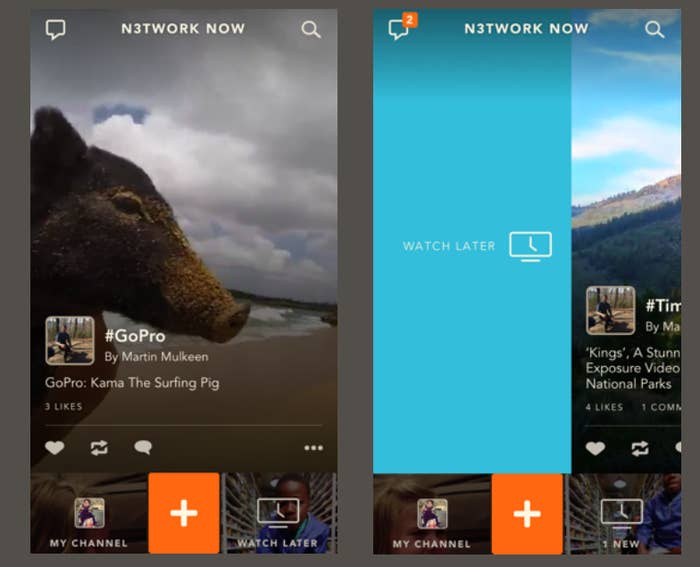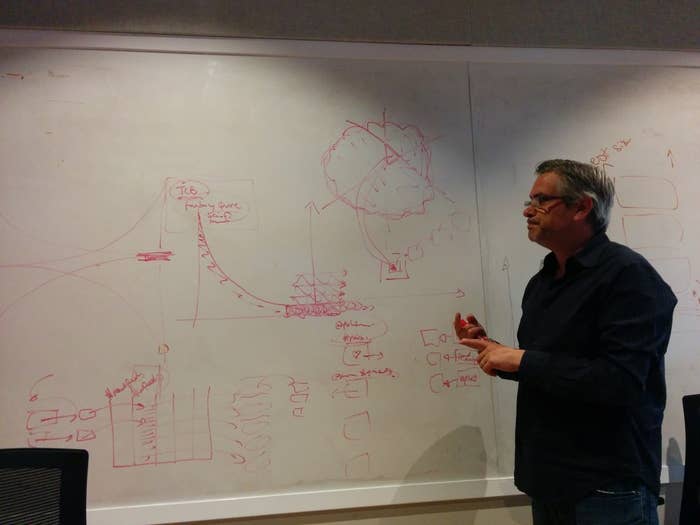
Neil Young thinks he can find some of the most interesting videos on the Internet for anyone who will sign up for his company's new application, called N3twork.
It's a problem that many startups — some of which, like Pinterest, are worth billions of dollars — have attempted to tackle, but have not yet quite figured out. That's partly because there is a staggering and rapidly increasing amount of content. On YouTube, for example, users upload 100 hours of video every minute, ranging from videos of cats doing funny things to documentaries about sophisticated cameras.
N3twork's approach is similar to many of these startups. When a user signs up, that user follows a number of topics which can become as broad as music, or as specific as goat videos. Those topics — which the company calls interests — are created by N3twork users pretty much in the same way Twitter users have created topics around hashtags. N3twork's users then choose specific videos to add to the app's array of videos, tagging them as they are added.
The company doesn't actually host the videos. Instead, the videos that are played in the app are basically embedded YouTube and Vimeo videos, which will include the same advertising on those services, Young said. But the goal is for half of the videos that are surfaced to its users to either be interesting enough to watch or save to watch later, with that percentage improving over time. Each action a user makes — whether that is skipping the video, saving it for later, or the amount of time the user has watched the video — alters hidden scores for videos that determine whether they are interesting enough or not.

Young, who previously built a video game company that he sold for about $400 million to a Japanese gaming company called DeNA, said he is betting the same strategy he used to create games that a small set of people play for a long time will also work for video.
"In games you have categories like trading card battle games, running games — and each of these has a natural audience," he said. "People prefer specific types of games, and within those types they have fictions [that interest them]. Marvel superheroes, vampires, high schools, that kind of thing. It's actually a lot simpler to build a scaled business of stacking these little 5% audiences on top of one another."
In simpler terms, N3twork is an attempt to find people who are interested in a specific kind of video, like music videos or videos of games like Minecraft, and surface them videos in those categories that users did not know they would find interesting. By doing that, N3twork can divine what its users are interested in, and get them to come back more often to watch more videos. The main experience of the app is a ten-second pre-roll of a video that takes up most of the screen that can be tapped to view the video, or swiped left or right to ignore it or save it for later, a mechanism recently made popular by applications like Tinder.
The company is not alone in trying to find the most interesting videos for specific topics. YouTube, for example, also tries to do this on its own.
However, the company that figures out how to effectively surface content to users they did not know they were interested in effectively unlocks a gold mine for potential advertisers. Much of the tech community points to Pinterest as being the best-positioned to accomplish that feat, but the approach varies from medium to medium. Young's bet is that focusing solely on video, and getting people to come to N3twork when they are bored, will be just as effective as television shows that don't fall under the broad-appeal networks like HBO or NBC — like travel networks and cooking shows.
"We don't really care to try to disrupt Hulu or HBO Go or Netflix," he said. "Where we think there's a huge opportunity is what on television is the fat middle of the channel guide, all those vertical channels that target food or fashion. people spend a lot of time consuming that content, and if you could bring all the internet's great video to you."
